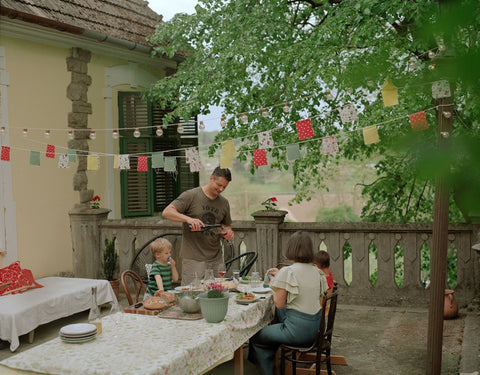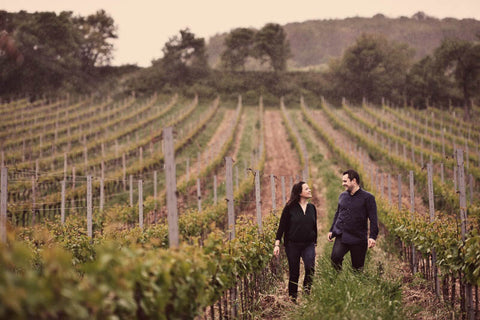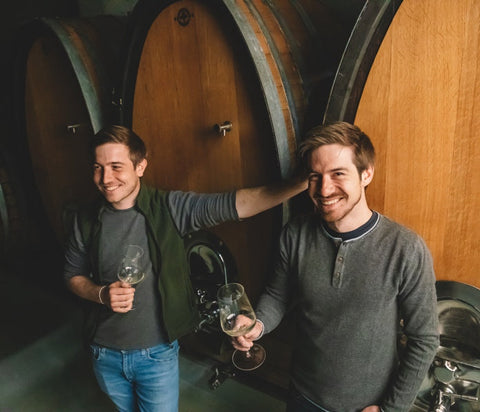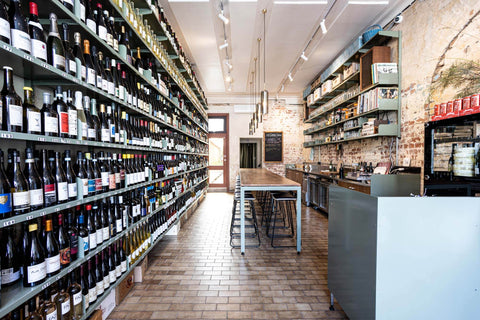Although less famous than the nearby region of Villány and Szekszárd, Pécs has a very long history of quality wine making, and a very unique blend of cultural influences and traditions that have influenced both its winemaking and local cuisine. The Hungarian variety Kadarka was brought here by Christians from the Balkans who fled the advancing Ottoman armies. The Turks would eventually reach Pécs as well, though, and have left a distinct cultural stamp on this small region. The city of Pécs was the administrative capital of Ottoman-occupied Hungary, and the Sultan Suleiman I (the Magnificent) was entombed here.
The University of Pécs is also Hungary’s foremost viticultural and oenological research institute. It has the 6th largest vine gene bank in the world and cultivates 1,500 traditional Balkan, Central European, and Eastern European varieties in its nursery.
Although the winemaker, Géza Galan, is not originally from the region, his wife Ibolya has deep roots in the area. In 2015, Géza began making wine as a hobby in a small local cellar, but it quickly evolved into a passion. By 2018, the couple took a bold step and purchased Vaskapu Kastély (Iron Gate Castle) in Mohács, which included a house, a cellar, and vineyards.
Committed to biodynamic farming and minimal intervention winemaking, Géza strives to create wines that honour the land and its legacy. His approach reflects the ethos of Hungary’s new generation of winemakers—balancing respect for tradition with sustainability and long-term stewardship of the soil and culture. As Géza explains, “winemaking is life; it’s about harmony between humans and nature, responsibility for sustainability, and nurturing our communities.”
The 2.5 hectares of vineyards he inherited include native varieties like Kadarka and Hárslevelű, with most plantings dating back to the early 1990’s. Géza aims to capture the spirit of Southern Hungary in his wines, emphasising celebration and community. This unique perspective enriches the concept of terroir, focusing on the connection between wine, place, and people.
Located in the larger Pannon wine region which includes Tolna, Villány, Szekszárd, and Pécs, the area benefits from a sub-Mediterranean climate, steady breezes from the Danube, and protection from the Mecsek Mountain. These conditions create a long and healthy growing season with minimal frost risk, ideal for organic and biodynamic practices. The soils—a mix of volcanic bedrock, loess, clay, forest loam, and high lime content—contribute to the wines’ distinctive structure.
The wines we’ve proudly imported are as follows.
Kadarka 2022
View in our Shop.
Kékfrankos 2022
View in our Shop.







Comments (0)
There are no comments for this article. Be the first one to leave a message!